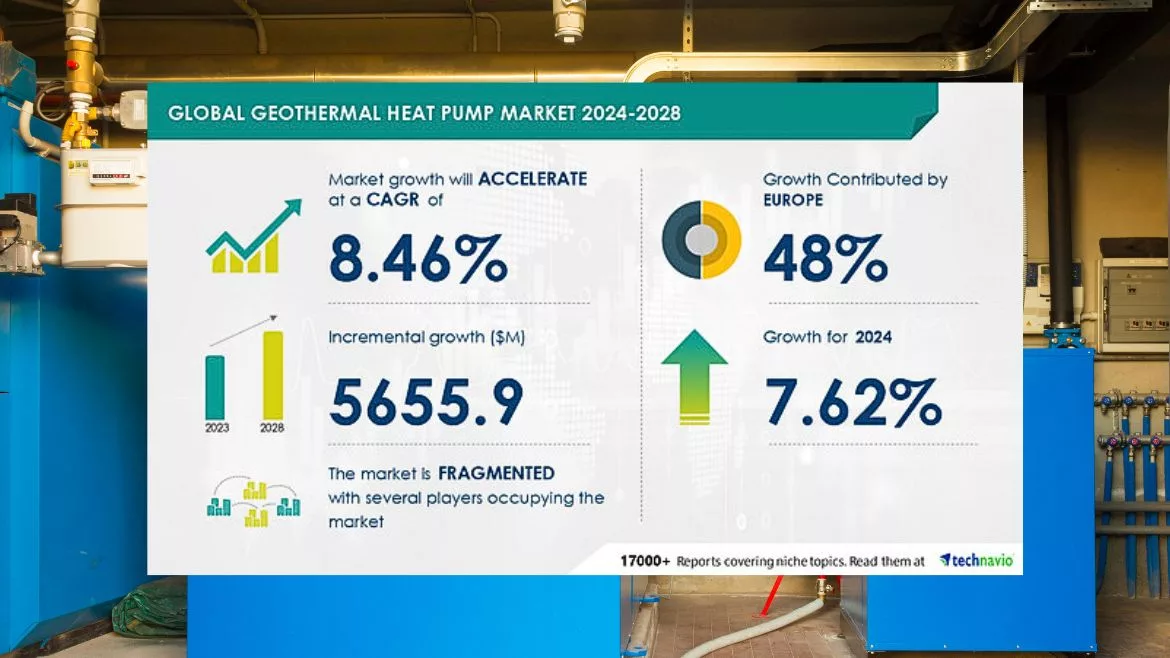News
Geothermal Heat Pump Market Set for Remarkable Growth, Promising Opportunities for Drillers
Projected to grow by USD 5.65 billion by 2028, the geothermal heat pump market offers new prospects in the drilling industry

The geothermal heat pump market is poised for significant growth, expected to increase by USD 5.65 billion from 2024 to 2028, fueled by a compelling annual growth rate of over 8.46%. This surge is largely driven by the rising demand for energy-efficient and cost-effective heating and cooling solutions in both residential and commercial sectors, according to a report by Technavio.
As the world increasingly seeks sustainable energy options, geothermal heat pumps are becoming a favored choice due to their ability to leverage the constant temperatures of the earth for heating and cooling purposes, thereby offering an eco-friendly alternative to conventional systems. These systems are not only energy efficient but also provide substantial long-term savings and reduced carbon footprints, aligning with global sustainability targets.
Despite the promising growth, the market faces challenges such as high initial installation costs and the need for specialized equipment like underground piping and potentially upgraded electrical systems. However, these obstacles are being mitigated by governmental and industry support through tax incentives, rebates, and innovative financing models, making geothermal technologies more accessible.
The market's expansion is underscored by significant investments in both closed-loop and open-loop geothermal systems, which are essential in varied geographical and climatic conditions. Closed-loop systems, which circulate a fluid through underground pipes, are particularly noted for their durability and low maintenance. Open-loop systems, using water from external sources, are applicable in regions with plentiful water supplies.
This burgeoning market not only supports environmental goals but also stimulates job creation in areas related to installation, maintenance, and manufacturing of geothermal systems. It draws on skills from the oil and gas industries, offering new opportunities for workers in these fields as they transition to renewable energy sectors.
For geothermal drillers and the broader drilling industry, the expansion of the geothermal heat pump market represents a substantial opportunity. The skills required for drilling geothermal wells are similar to those used in oil and gas drilling, allowing for a seamless transition and diversification into renewable energy projects. This shift is not just beneficial for business diversification but also crucial for supporting sustainable energy development.
The increased adoption and implementation of geothermal technology could lead to further innovations in drilling and enhance the capabilities of drillers to explore and develop geothermal resources. As the market grows, so does the potential for drilling companies to engage in environmentally sustainable projects that offer long-term benefits to communities and the planet.
This trend towards geothermal energy is not only reshaping the heating and cooling industry but also providing a pathway for the drilling industry to evolve and adapt to the demands of the future energy market, emphasizing the importance of geothermal drillers in achieving the goals of energy efficiency and sustainability.
Looking for a reprint of this article?
From high-res PDFs to custom plaques, order your copy today!





